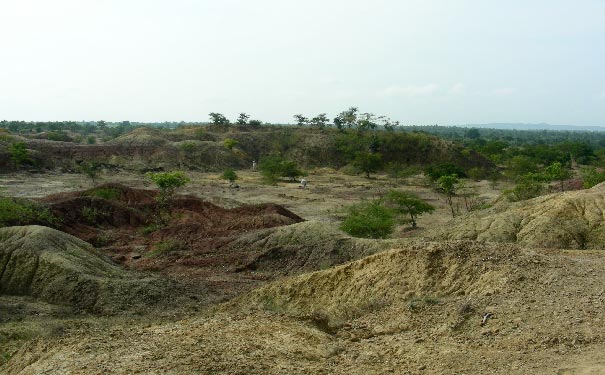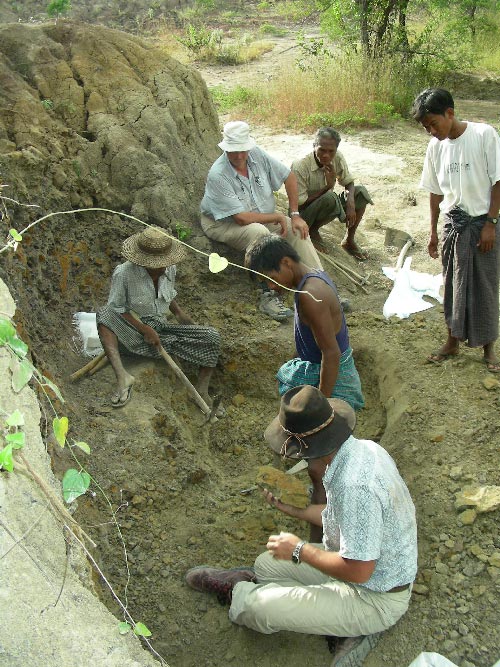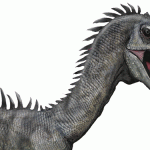
Field site in Myanmar. Image: Carnegie Museum of Natural History
A new primate fossil suggests that our distant ancestors evolved in Asia, not Africa.
A new primate has been discovered in Myanmar by an international team of researchers. Named Afrasia djijidae, this discovery, which was reported in the Proceedings of the National Academy of Sciences, may highlight a critical step in the evolution of humans and larger apes in Africa.
Scientists have believed for decades that anthropoid evolution was centred in Africa. However, recent fossil discoveries in China, Myanmar and other Asian countries suggest that they may have evolved in Asia and made the trek into Africa.
The discovery of the 37-million-year-old anthropoid helps seal the case that early anthropoids originated in Asia, according to Carnegie Museum of Natural History palaeontologist Chris Beard. All of the primitive anthropoids have come from Asia, with the earliest appearing in China 45 million years ago.
“We think that the initial colonisation of Africa by early anthropoids coming from Asia was a decisive event in primate and human evolution,” Beard says. “In fact, it is fair to say that if tiny proto-monkeys such as Afrasia had never been able to get to Africa, there is no reason to think that we would be here speculating about these ancient events.”
While Afrasia doesn’t solve the mystery of how they managed to cross the Tethys Sea, which separated these regions at this time, it may tell scientists when the anthropoids managed the trek. The story of colonisation can be seen its teeth, as the complicated structure of mammalian teeth act as a fingerprint and allows scientists to work out who is related to who.
The Myanmar anthropoid’s teeth closely resemble those of another anthropoid, Afrotarsius libycus, which was discovered in 2010 at a site of similar age in Libya. The teeth are not only the same size, but have a similar pattern of cusps and crests.
These similarities and the ages of the fossils suggest that they shared a common ancestor that had colonised Africa just before Afrotarsius first appeared in the fossil record. “For years we thought the African fossil record was simply bad,” explains team leader professor Jean-Jacques Jaeger, from the University of Poitiers in France.
“The fact that such similar anthropoids lived at the same time in Myanmar and Libya suggests that the gap in early African anthropoid evolution is actually real.”
The discovery of this relationship may also help scientists figure out which lineage made the journey. “Reconstructing events such as the colonisation of Africa by early anthropoids is a lot like solving a very cold case file,” Beard says.
“Afrasia may not be the anthropoid who actually committed the act, but it is definitely on our short list of prime suspects.”
Source: Eureka Alert

The fossil that might solve Afrasia's mystery. Image: Carnegie Museum of Natural History






